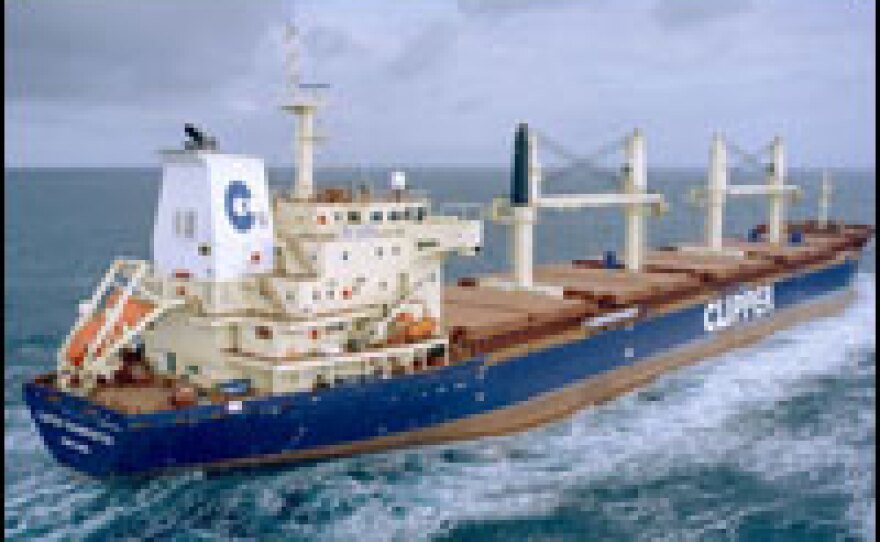
They dropped the money for the pirates from a helicopter on a Friday morning. Shipping executive Per Gullestrup's crew was released and headed home. The pirates, in the Gulf of Aden, headed off.
But the next morning, Gullestrup was in his kitchen in Copenhagen when his cell phone rang. The caller was "Mr. Ali," the pirate negotiator who says he is known on dry land as Ali Mohammed. "When he got ashore and got back to his home in Somaliland and he called me, initially, funnily enough, it was almost a courtesy call," says Gullestrup, CEO of the Clipper Group. "He just wanted to say he'd gotten back home."
That surprising call marked another step in an unusual working relationship, between a bargainer for pirates demanding a $7 million ransom and the businessperson trying to save sailors' lives. "We started talking because I was curious about the inner working of the system ... and he was very forthcoming with that," Gullestrup says.
Over the course of their conversations, Gullestrup asked about the pirates' thinking when they lowered the ransom figure. Gullestrup won't say exactly how much the company paid, only that it was between $1 million and $2 million.
For his part, Mohammed says he was curious about the shipping company's bargaining strategy, and that the men have continued to e-mail back and forth — two or three times a day.
"We talk about the issues of piracy or this or that," Mohammed says.
Their experience speaks to business negotiations everywhere, which leave the parties not necessarily as adversaries. Gullestrup is operating in circumstances where he is essentially on his own. He can't expect military help when and where he needs it.
Pirates, meanwhile, are colluding, sharing intelligence in an unregulated environment. Economists would say the dynamic centers on market power. The situation makes it hard for a shipper like Gullestrup to figure out the market rate for ransom.
"The owners are escalating the ransom payments because they're not coordinating how to deal with pirates," Gullestrup says. "The pirates are extremely good at sharing information. We know for a fact from Ali the pirates have piracy workshops. Pirates of various clans, [their] elders are getting together and they will exchange information."
Mohammed says he gets something out of the relationship, too. He doesn't see himself as a pirate. He says he agreed to negotiate for pirates so he could learn enough about their business to start his own.
"If I become an expert on piracy and try to milk that, I think it is a legit business," he says. "The news media and global news media will need someone who is going to be an authority, to report from the inner feelings of a pirate, and to report whether pirates are going to stay around for a long time or not, and how to eliminate piracy."
Gullestrup sounds satisfied with that arrangement. "We tried to help him by giving him credentials as an expert in piracy locally, and he's trying to establish himself as a piracy consultant. It's a quid pro quo," he says. "It's not like we're bosom buddies. It's a business relationship."
The executive expresses a certain appreciation for Mohammed's character. "He's a very kind person, and he has a wife and a son," Gullestrup says. "He has a large herd of camels. He sent me an e-mail that said he allocated three camel babies to me, for which I'm honored."
Mohammed called the gift a good gesture. "It's those little things that count."
Copyright 2022 NPR. To see more, visit https://www.npr.org. 9(MDAzMjM2NDYzMDEyMzc1Njk5NjAxNzY3OQ001))





